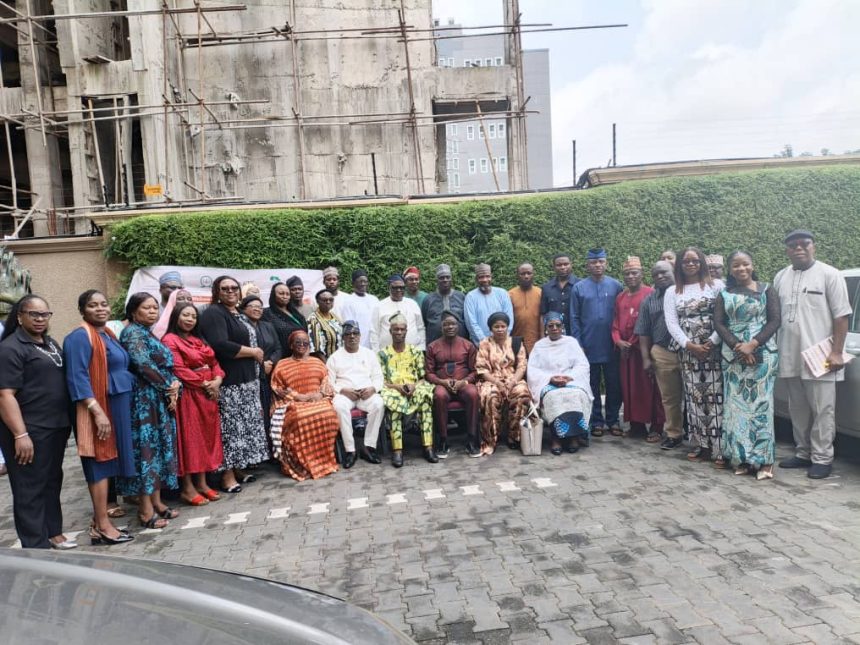The Federal Government has disclosed that it will ensure that every Genetically Modified Organisms (GMOs) product follows strict regulatory guidelines and is accountable for consumption in Nigeria.
The Director of the Food and Drug Services Department, Federal Ministry of Health and Social Welfare, Pharm. Olubunmi Aribeana made the declaration at the sensitisation workshop on GMOs and their products held in Abuja on Wednesday.
Represented by Head of the Department, Mr. John Atanda, Director of National Foods and Safety Programme of the ministry said, “The workshop is to deepen our understanding of biotechnology innovations, biosafety considerations and their health and food security implications.
“This workshop is also to equip the Ministry leadership team to participate effectively in the national dialogue and policymaking on the safe and beneficial adoption of modern Food safety and Nutrition technologies.
“Today, we stand at an important crossroads where various interpretations for and against the use of modern biotechnology have made media rounds and caused some sensational headlines.
“We believe that by working together, we can transform the way biotechnology is perceived and applied within our nation, ensuring that innovations like genetically modified organisms (GMOs) contribute meaningfully to our food security and nutritional advancement.
“The Food and Drug Services Department and its Agencies are committed to protecting and promoting public health through safe, nutritious and wholesome foods.
“This means that every product born from modern biotechnology will be held to the highest safety standards. Rigorous risk assessments—covering allergenicity, nutritional composition, long-term health impacts, and environmental considerations will guide our approach.
“In doing so, we intend to mitigate potential risks and to engender the transparency our consumers rightfully expect. Together with MDAs like NAFDAC, IPAN, NBRDA, and NBMA, we are ensuring that every GMO product follows standard regulatory procedures such as labelling and traceability to reinforce trust and accountability for every Nigerian.”
The Director underscored that with a robust regulatory framework in place, we can dispel misconceptions about modern biotechnology and demonstrate its vital role in shaping a healthier, more resilient Nigeria in food security.
The Director General of National Biotechnology Research and Development Agency (NBRDA), Prof. Abdullahi Mustapha, stressed that their purpose today is not to engage in speculation, but to share concrete evidence, evaluate outcomes, and enhance the policy and communication strategies that will safeguard health, improve agricultural yields, and secure livelihoods.
The DG, who was represented by Dr. Oyedele Julius, said ” despite the criticisms surrounding modern biotechnology, it has already produced significant and tangible benefits for Nigerian farmers. Take, for example, the TELA maize farmers who participated in pilot seasons and reported yield increases exceeding fifty per cent, alongside reduced pesticide usage and enhanced net revenues. These are not mere theoretical claims; they represent real harvests impacting real families.
“Cowpea, a staple and cash crop for millions, has likewise seen transformation through pod-borer resistance traits. Field studies and economic evaluations indicate striking returns to farmers cultivating Bt/PBR cowpea: dramatically reducing insecticide sprays, increasing substantial yield protection and very strong returns on investment. For many households, this is translated directly into more food on the table and more money in the pocket.
“Let us not forget Bt cotton, which reintroduced a level of yield potential previously unseen in our cotton belt. Trials and early commercialisation demonstrated that Bt cotton can produce yields multiple times higher than the local varieties it replaced, while reducing the pesticide burden on farmers and the environment. That is a win for incomes and a win for safer farming.”
According to him, these are not isolated anecdotes. Our regulatory advancements have moved in parallel with science. Nigeria has approved and progressed the commercialisation pathway for insect-resistant and drought-tolerant maize varieties, signalling that we are serious about deploying tools that mitigate pests and climate risks.
“Why does this matter for health and social welfare? Health, nutrition and economic resilience are closely bound. Reduced crop losses mean a more stable food supply, lower food prices and fewer nutrition shocks. Reduced pesticide use lowers public-health risks to rural communities and agricultural workers. It is therefore appropriate that we deliberate here, with officers of the Ministry of Health and Social Welfare, on harmonised messages that protect consumers, inform clinicians and empower public servants to communicate clearly and confidently.
He said, “Permit me to anchor this work in the national vision. The deployment of safe, evidence-based biotechnology aligns squarely with President Bola Ahmed Tinubu’s Renewed Hope Agenda and its blueprint for food security and economic revival. Science and policy must operate in concert to deliver on that promise: better yields, stronger incomes, and resilient food systems that serve every Nigerian region.
“My dear stakeholders, our regulatory framework is designed to be robust, transparent and science-driven. NBRDA works with independent biosafety authorities, national research institutes and international partners to ensure that approvals follow rigorous trials, risk assessments and post-release monitoring. We owe it to our citizens to be rigorous and to communicate the rigour that underpins our judgments.”
Prof. Lawan Mohammadu from the Plant Science Institute of Agriculture Research at Ahmadu Bello University highlighted that the country is trying to stand on its feet despite the deception on GMOs, noting that the event will provide clarification on the application of technology and will reduce farmers’ negative perception.
In her keynote, Dr. Rose Gidado, Director of Agric Biotechnology NBRDA, while speaking on the science of Agricultural Biotechnology, stressed that trait identification involves finding a gene responsible for a desired trait, such as drought resistance in plants.
She noted that harnessing Biotechnology for sustainable agricultural development will enhance food security, improve livelihoods and economic growth in Africa.
ALSO READ TOP STORIES FROM NIGERIAN TRIBUNE
WATCH TOP VIDEOS FROM NIGERIAN TRIBUNE TV
- Let’s Talk About SELF-AWARENESS
- Is Your Confidence Mistaken for Pride? Let’s talk about it
- Is Etiquette About Perfection…Or Just Not Being Rude?
- Top Psychologist Reveal 3 Signs You’re Struggling With Imposter Syndrome
- Do You Pick Up Work-Related Calls at Midnight or Never? Let’s Talk About Boundaries







